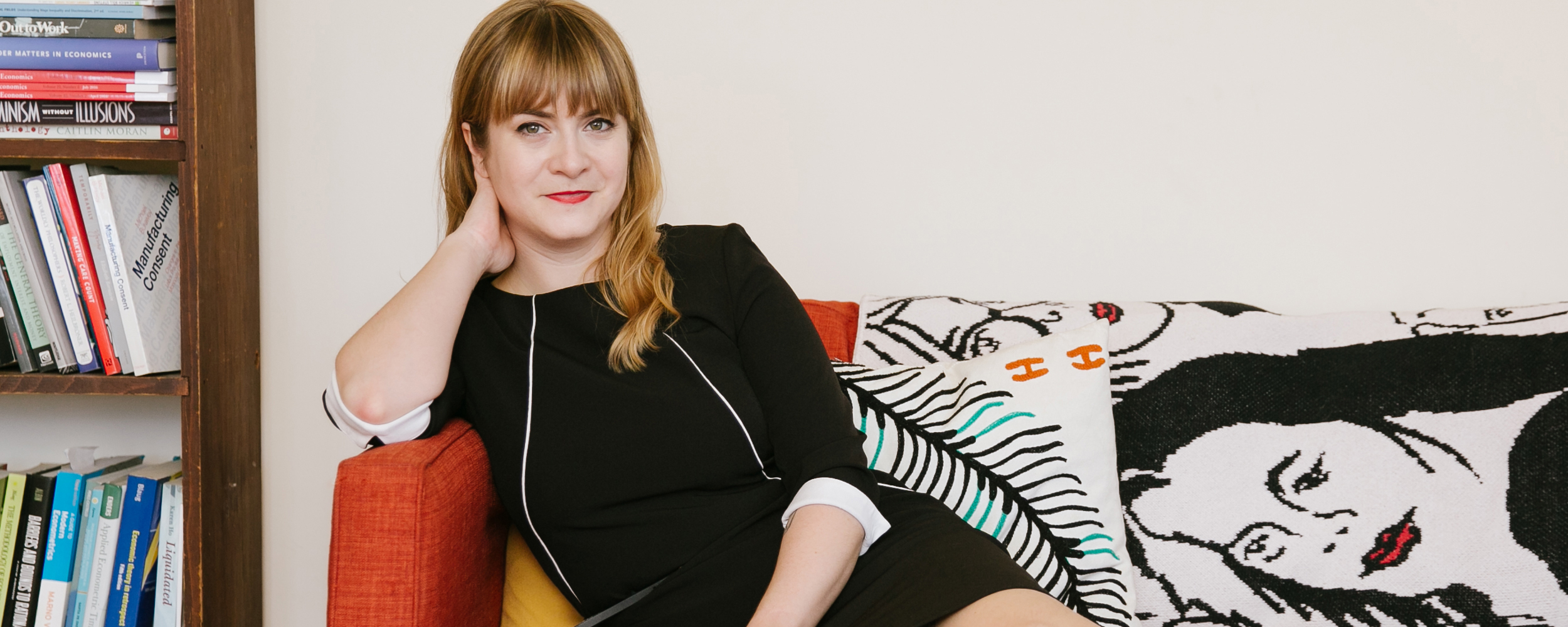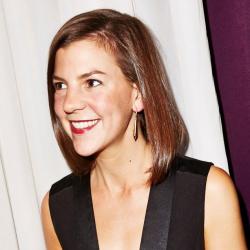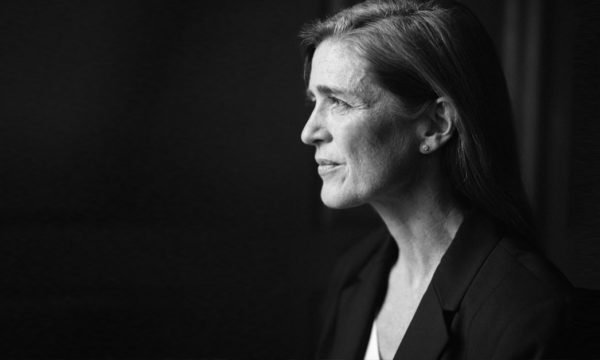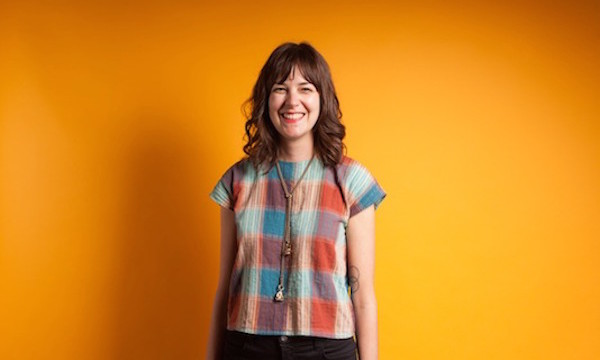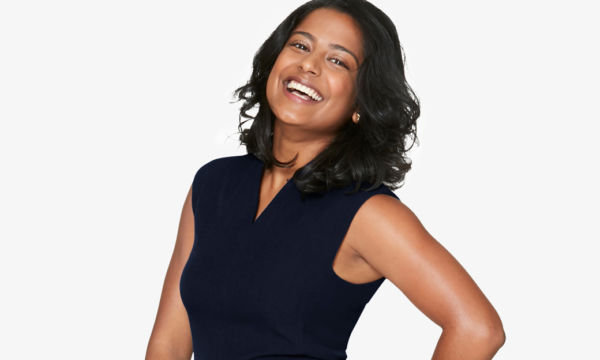The ‘Lady Economist’ on Women, Ego, Tattoos, and Power in Washington
March 10, 2017 | Filed in: Woman of the Week
Kate Bahn is an economist at the Center for American Progress, a think tank in Washington, D.C. She also has multiple tattoos, owns an elderly orange cat, wears red lipstick, and edits The Lady Economist, a website devoted to feminist economics. We visited her sunny apartment a few weeks ago to talk mentorship, naval ship metaphors, and clothes that mean business.
I WOULDN’T SAY I HAVE A NATURAL APTITUDE for economics, but I love logical thought problems. I’m not great at math—although I’m not terrible at it, either. However, I have a passion for this type of work, and for thinking about how people can get more access to economic opportunities.
I BECAME INTERESTED IN POLITICS when I was 16. I was upset about the outcome of the 2000 election, so I went from doing more artsy things to wanting to study policy and history in college. When I took my first economics class, it was love at first sight. I knew right away that economics would provide me with the skills and authority to be effective in making change.
I WORKED IN THE LABOR UNION in New York City before going to grad school. At that point, I wanted to do something around worker’s empowerment, but I wasn’t sure exactly what. Getting to see the research department at the union helped me figure out that I was more interested in pursuing economics.
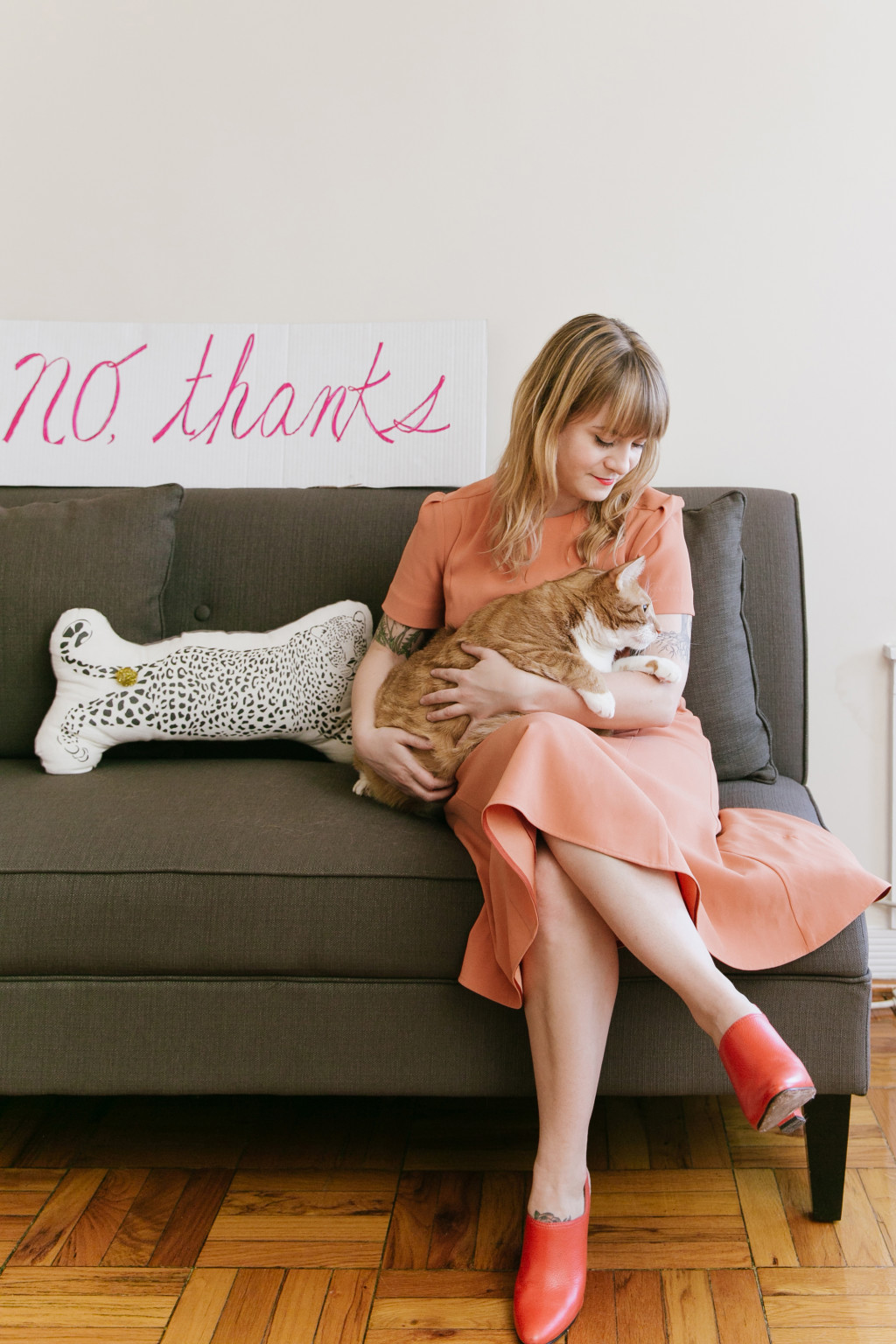
Kate wears the Inez dress in terracotta; her cat is named Brisco, and he did not particularly enjoy being photographed.
MY MOM IS ALSO A PH.D, which made the path easier to consider. In a field like mine, you need to have a lot of confidence in your knowledge and abilities, and having a mom who is a respected scholar made it seem normal to me. My mom is one of my biggest influences.
I DESCRIBE MYSELF as a feminist economist. Gender as a unit of analysis is a fundamental basis of the work I do. In practice, I’m a labor economist, so I study how the labor market functions. But I’m also somewhat of a generalist. I often get leeway to tailor my projects for topics that interest me. For example, I was asked to do a report for the Center for American Progress on small business ownership and entrepreneurship; I made it about women- and minority-owned businesses, and I released it at an event with the then-Treasury Secretary. I try to gear my work towards those who have the biggest barriers in the economy, even if it’s not always politically popular.
THERE’S A METAPHOR ABOUT NAVAL SHIPS: They spend most of their time in port, or patrolling, or doing something easy, but they’re actually built for battle. And that’s how I feel—like a naval ship. When you’re working with a cooperative administration, you get to make lots of tiny, incremental policy changes, but the fact is, I’m built to fight. I have the skills to do difficult and stressful work in the face of opposition. Rather than being frustrated by how much harder my job is because of the circumstances, I try to think, “I trained to have a hard job. That’s what I always wanted to do.”
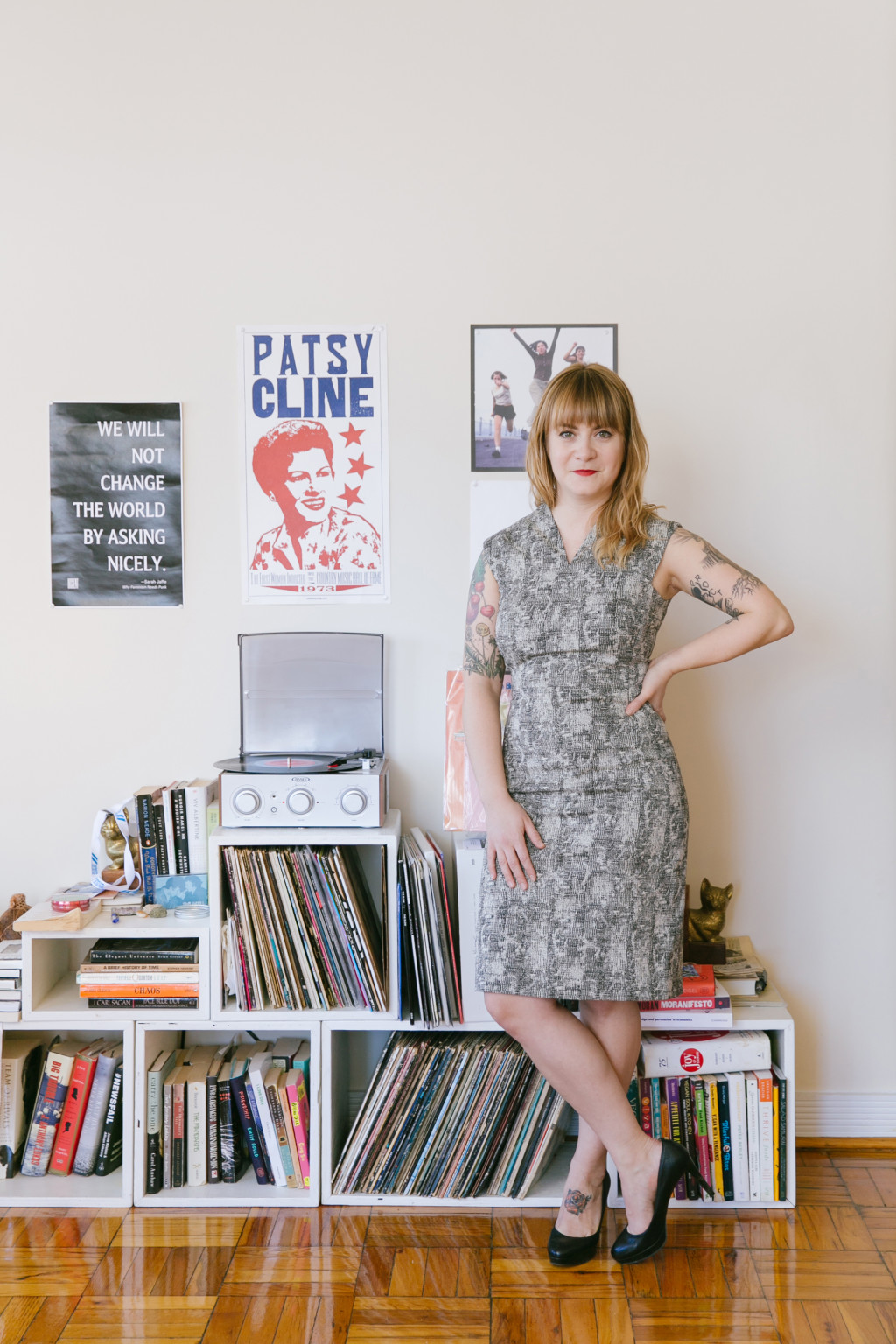
Kate wears the Aditi dress in crackle.
I’VE HAD FEMALE MENTORS in many stages of my life. My college advisor was a female economist, and when I worked at the union, my boss was this badass female lawyer. She taught me so much about being a woman in a male-dominated space, and as hard as it was to work there, I felt respected. Then, in grad school, one of my dissertation committee members was a man named Will Milberg, who is the dean of the New School and one of the most feminist men I’ve ever met in my life. He encouraged me a lot, and did a reading group with me about feminist economics and feminist thought.
WHEN APPROACHING SOMEONE I ADMIRE, I wouldn’t say I’m totally shameless, but I just do it. I think I’m good at networking because I’m truly interested in getting to know people, why they do what they do, and how they do it. People complain about D.C. being a place where everyone wants to use each other to get ahead, but I think if you approach people from a place of trying to make friends who can teach you stuff, it’s much easier than seeking out a formal mentor relationship.
I HAVE A BIG EGO about feminist economics. It’s often considered a secondary issue, or not as rigorous or important as issues that tend to be male-dominated, but I believe that studying gender is incredibly valid. In grad school, I started a group within my department called “The Economisses.” We would get together for lunch or do cocktail hour, and if we knew a famous economist was coming to speak at our grad program, we’d also arrange a breakfast or dinner with him or her. If you can create a close-knit community with other women, you can amp each other up when you’re pissed about someone shooting down your idea because they don’t think gender is important. It helps you face that headwind.
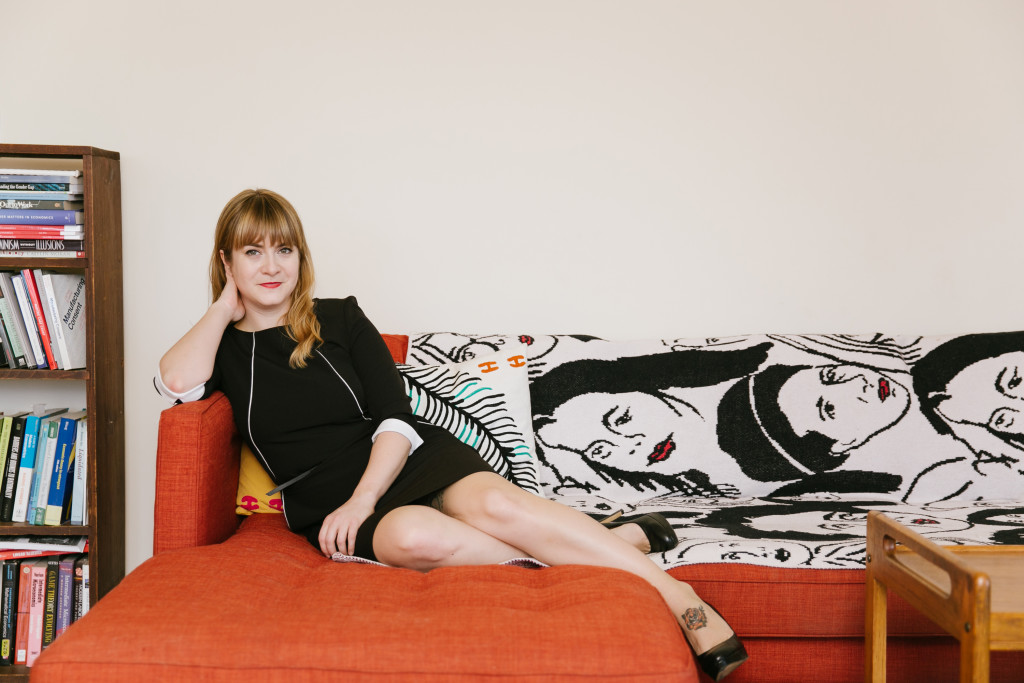
Kate wears the Etsuko dress in contrast.
I THINK IT’S IMPORTANT to dress professionally, especially as someone who looks relatively young for my position. I wear a lot of blazers and button-up shirts at work to say, “I’m not messing around here.” But I do like to wear weird clothes, particularly by D.C. standards—like bright colors and retro shapes. When I have to dress formally, I add one tiny little piece that’s more “me.” Say I’m wearing a black suit with a white button-up shirt—I’ll wear my orange mules.
I KEEP MY TATTOOS completely covered at work; it’s just a line I’ve drawn. When I was at the labor union in New York, I had this colleague who was an old-school Italian guy with full-sleeve tattoos, and he always kept his arms completely covered during working hours. He said, “You don’t know how someone’s going to react, and you don’t want to tarnish a first impression.” He was right, and I take that seriously.
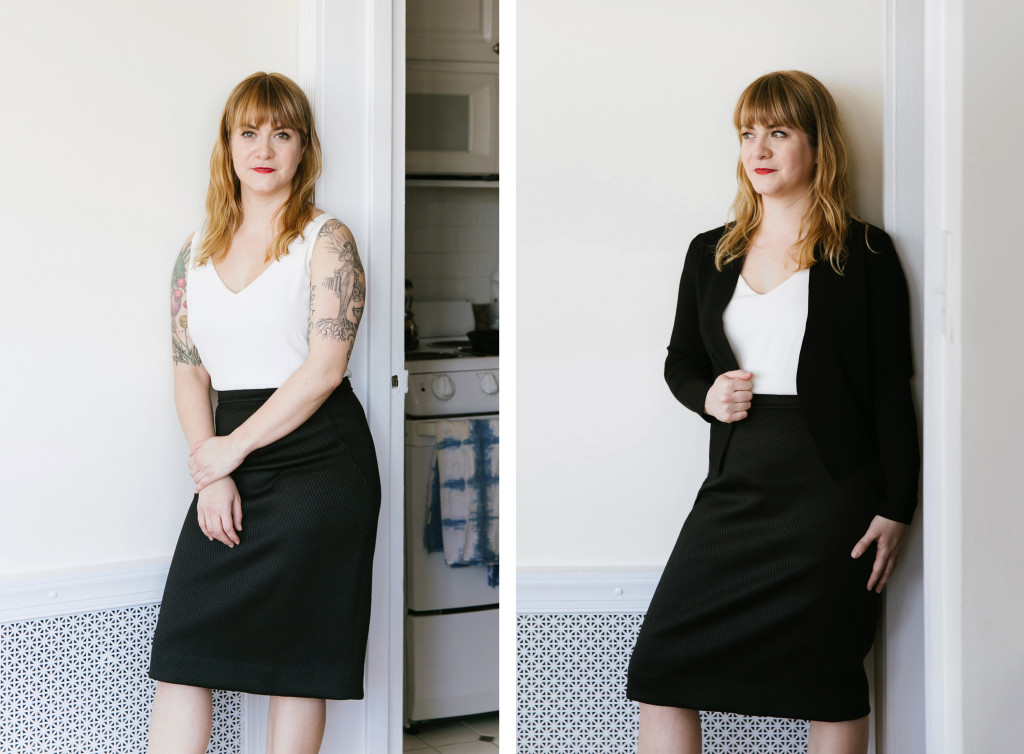
Kate wears the Crawford top in ivory with the Cornelia skirt in onyx weave, left; on the right, she covers up with the Sant Ambroeus jardigan.
WHEN I FIRST MOVED TO D.C., I missed New York a lot. It seemed like everyone I met worked in policy, and that’s what they were interested in: policy. And I am, too, but I have other interests as well. Everyone kept telling me, “You just need to find your people,” which I found immensely frustrating. When I lived in New York, I could throw a rock and find a person I would want to talk to, but in D.C., I didn’t find that as quickly. Now I feel like I’ve hit my stride. I’ve worked with a lot of brilliant people, which is exciting, and I have more co-worker friends than I’ve ever had before.
IT’S EASY TO FEEL OVERWHELMED by the sheer task of trying to create change. Sometimes I feel like it’s too much. I’m not a genius, and it’s hard work to be as good as I want to be. But it’s also something I care deeply about. When I was in a particularly difficult period of writing my dissertation in grad school, I went on vacation to Mexico to get a break, and I couldn’t stop wondering things like, “Oh, I wonder how much this worker makes? I wonder if there’s a gender gap in Mexico, and if it’s more perpetuated by women being more likely to take paid leave from work?” It was a good lesson that I’m passionate about this, even if it’s difficult and often doesn’t come naturally.
BEING POLITICALLY ENGAGED for my job feels like a privilege—there are so many people who have to squeeze activism into their spare time. I get to be productive in things that I really care about every day, and make a living doing it.
Photographs by Lindsay Brown.





